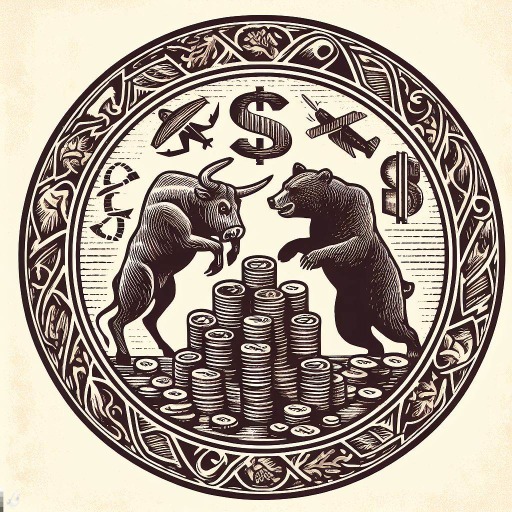Managerial Economics-AI-powered economic insights tool
AI-powered tool for smarter business decisions
How do I apply economic theories in business decision-making?
What economic factors should I consider in market analysis?
How can managerial economics improve resource allocation?
Explain a complex economic concept in simple terms.
Related Tools
Load More
Economics Econ
🔷#𝟏 𝐒𝐩𝐞𝐜𝐢𝐚𝐥𝐢𝐳𝐞𝐝 𝐄𝐜𝐨𝐧𝐨𝐦𝐢𝐜𝐬 𝐓𝐮𝐭𝐨𝐫🔷

Microeconomics
Expert in advanced microeconomics, engaging in thorough explanations and tailored learning experiences.
Managerial Accounting
This GPT helps me answer and solve accounting problems and questions. Explain concepts and solve basic math equation.

Economics Expert GPT
Economic theory applied to: discussion, current events, historical trends, anything imaginable.

EconGuru
I might explain econ questions better than your professor!
Intermediate Microeconomics GPT
Teaching Intermediate Microeconomics with real-world case studies and calculus
20.0 / 5 (200 votes)
Introduction to Managerial Economics
Managerial Economics is a discipline that combines economic theory with business practices to facilitate decision-making and forward planning by management. It applies microeconomic concepts and tools to analyze problems, optimize outcomes, and guide managerial decisions. The primary goal is to help businesses allocate resources efficiently, maximize profits, and remain competitive in dynamic markets. Key areas include demand analysis, production, pricing strategies, risk management, and market competition analysis. For example, in a manufacturing firm, managerial economics might analyze how changes in production levels affect costs and revenues, helping management decide the optimal production volume. In a retail setting, it could help a company determine the most profitable pricing strategy by studying consumer demand elasticity and competitor pricing.

Main Functions of Managerial Economics
Demand Forecasting and Analysis
Example
A technology company uses demand forecasting to anticipate future demand for its smartphones by analyzing trends, consumer preferences, and economic indicators.
Scenario
The company predicts a surge in demand during the holiday season. Based on this analysis, it increases production and prepares marketing campaigns to capitalize on higher demand, while also securing supply chain resources to prevent shortages.
Pricing Strategy and Profit Maximization
Example
A retail company applies pricing models like price discrimination or cost-plus pricing to maximize profits from different consumer segments.
Scenario
A clothing retailer segments its market by offering premium and budget lines. Using elasticity of demand, it sets a higher price for the premium line, understanding that its customers are less price-sensitive, while maintaining competitive prices for the budget line to attract price-conscious shoppers.
Cost Analysis and Production Optimization
Example
A car manufacturer assesses its production process to determine how to reduce variable costs while maintaining quality.
Scenario
After conducting a cost-benefit analysis, the manufacturer invests in automated machinery that increases production efficiency, lowering the average cost per unit. This allows the company to lower prices slightly, gaining a competitive edge without sacrificing profitability.
Ideal Users of Managerial Economics
Corporate Executives and Managers
Corporate executives benefit from Managerial Economics by applying it to strategic decision-making. These users focus on long-term business growth, resource allocation, and competitive strategies. For instance, they might use market demand analysis to decide whether to expand into a new market or diversify their product line.
Entrepreneurs and Small Business Owners
Entrepreneurs and small business owners utilize Managerial Economics for pricing decisions, cost management, and demand forecasting. Since small businesses often operate with limited resources, these users need precise tools to optimize their operations and ensure sustainable growth in a competitive environment.

How to Use Managerial Economics
1
Visit aichatonline.org for a free trial without login, no need for ChatGPT Plus. The tool is accessible and ready to use without any payment or registration.
2
Define your business objective. Whether you're looking to optimize resource allocation, forecast demand, or set pricing strategies, having a clear goal will help you focus on the most relevant economic principles.
3
Input relevant data. Gather the necessary financial, market, or operational data, as the tool’s insights are driven by real-world figures such as costs, revenues, market demand, and competition.
4
Analyze using key economic concepts. Utilize concepts such as marginal analysis, opportunity cost, and elasticity to interpret the data. The tool provides structured models to assess different business scenarios.
5
Make data-driven decisions. Based on the analysis, use the insights to guide decisions on pricing, product mix, market entry, or cost-cutting strategies, ensuring they align with your overall business objectives.
Try other advanced and practical GPTs
Dungeon Master GPT
AI-powered assistant for immersive D&D campaigns

Data Analyst
AI-powered data insights at your fingertips

Local SEO Service Page Writer
AI-powered content creation for local SEO.

Content Crafter
AI-driven content creation tailored for you

TRIZ Master
Innovate and Resolve with AI-Powered TRIZ

🌐📚 Polyglot Translator Pro
AI-powered translations and content creation.

Funnel Master GPT
AI-powered funnel-building guidance for growth

L'expert en dissertations
AI-powered dissertation assistant for structured essays.

AI Builder Expert
AI-powered assistant for every task.

"Юрист"
AI-powered legal advice for Ukraine.
eLearning Robię
AI-powered learning for business goals.

Executive Coaching online
Empower Your Growth with AI Coaching

- Market Analysis
- Forecasting
- Resource Allocation
- Pricing Strategy
- Cost Control
Common Questions About Managerial Economics
How can Managerial Economics help in decision-making?
Managerial Economics applies economic principles to real-world business challenges. It helps managers make decisions by analyzing market conditions, optimizing resource use, and assessing pricing strategies through models like marginal cost analysis and elasticity.
What industries can benefit from Managerial Economics?
Managerial Economics is applicable across industries, including manufacturing, services, retail, and tech. It can be used for cost-benefit analysis, demand forecasting, competitive analysis, and decision-making related to pricing and production.
What kind of data is required for Managerial Economics?
Data such as costs, revenues, market demand, competition, and consumer behavior are key. Both quantitative (sales, production levels) and qualitative (market trends, consumer preferences) data help in deriving actionable insights.
Can small businesses use Managerial Economics?
Yes, small businesses can apply Managerial Economics to make better financial and operational decisions. It’s particularly useful in understanding market dynamics, optimizing pricing, and managing limited resources more effectively.
What are some common tools used in Managerial Economics?
Common tools include break-even analysis, demand forecasting models, pricing strategies, cost-volume-profit analysis, and game theory. These help businesses in various decision-making processes like market entry, scaling, and pricing.